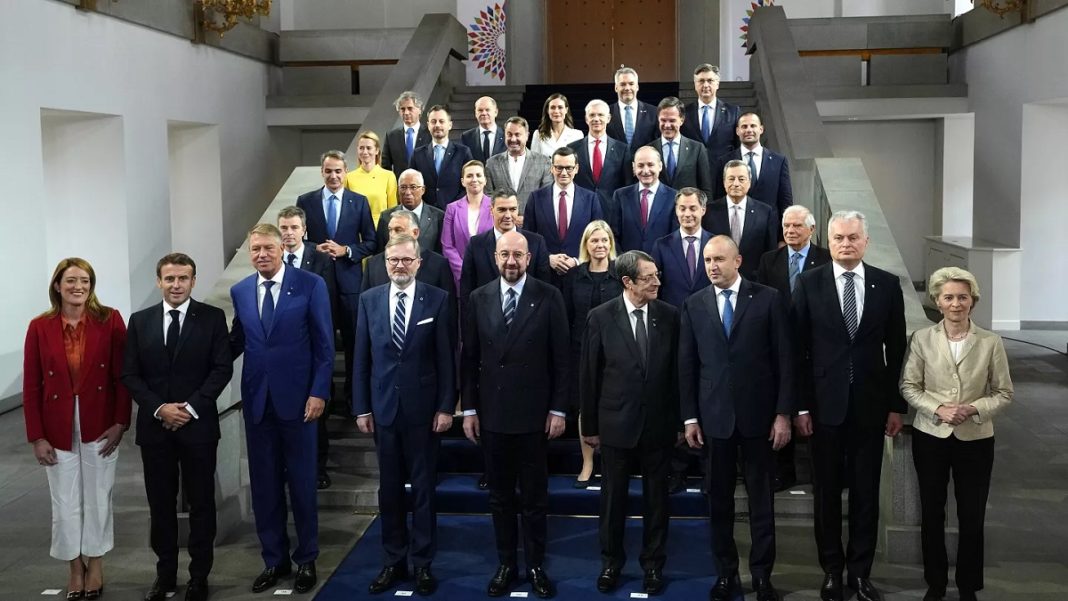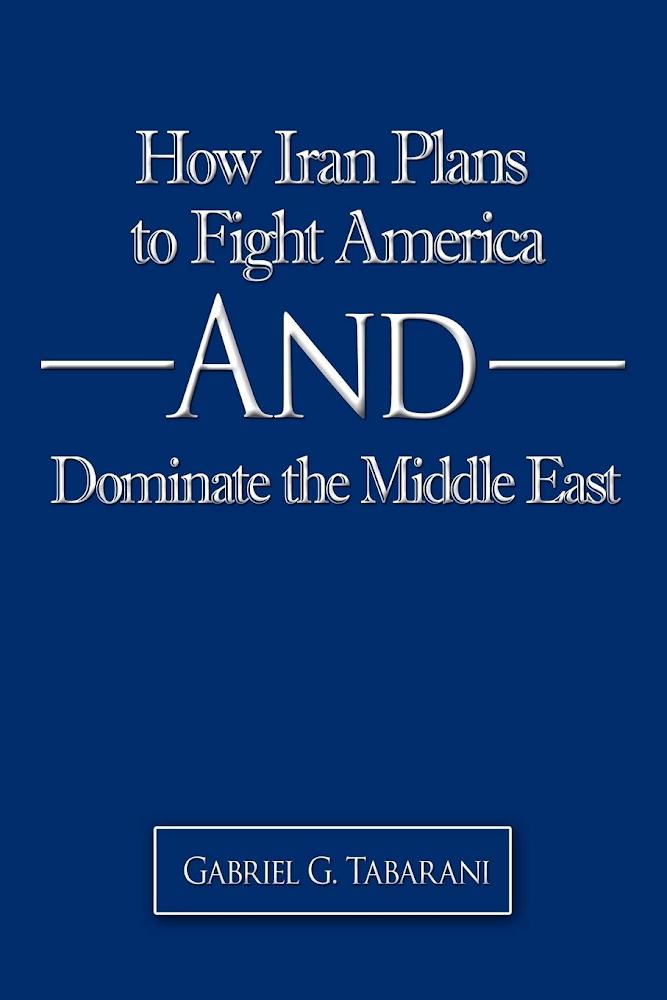By Gabriel G. Tabarani
Since the beginning of the Israeli military campaign targeting Hezbollah and the Iranian Revolutionary Guard across Lebanon and Syria, both Israel’s allies and adversaries have been surprised, burdened, and concerned by the pace of events. From the initial airstrikes against senior Hezbollah and Iranian Revolutionary Guard officials in late July to the detonation of booby-trapped pagers and communication devices that killed and maimed thousands of Hezbollah members and agents in mid-September to the assassination of Hassan Nasrallah, every step Israel took revealed just how outdated many assumptions guiding international diplomacy in the Middle East were.
Now, with the onset of an Israeli invasion of Lebanon and a direct conflict between Israel and Iran, the European Union’s inability to influence developments along its eastern Mediterranean border has become a particularly stark symbol of a broader international feeling of helplessness in the face of an escalating war spiraling out of control.
The extent to which EU institutions, member states, and the UK have become passive spectators to the escalating conflict stands in stark contrast to the ambitions Europeans once had of becoming central players in creating a new, peaceful, and prosperous Middle East. Starting in the early 1990s, despite the United States remaining the dominant military and security force, European initiatives to promote regional trade, economic development, and infrastructure integration became critical components of every effort to broker lasting peace in the Middle East. Since then, the EU has been a consistent source of vast reconstruction aid and commercial investment throughout the region, even as every new high-level initiative designed to promote regional stability ended in disaster.
Whether it was fostering reconciliation and resolving disputes through economic growth as part of the 1993 Oslo Peace Accords between Israel and the Palestinians or the more recent cooperation with the UAE and other Gulf states to promote regional economic integration, European countries and institutions have been at the heart of trade and diplomacy in the Middle East. While oil and gas projects help define close trade ties between regional countries and the UK, France, Italy, and Germany, the continuous flow of high-end European manufactured goods, investments, and arms contracts into the region theoretically provides the EU with significant influence to shape the Middle East’s strategic direction.
For Israel, access to the unified European market through the EU-Israel Association Agreement, which came into force in 2000, has been critical for securing much-needed economic growth. With most of Israel’s tourism, agriculture, and manufacturing exports directed toward EU countries and Israeli banks intertwined with Europe’s financial services sector, much of Israel’s now precarious economy depends on maintaining strong trade relations with Europe. Although Israel’s highly successful tech sector is a significant player in U.S. and Asian markets, much of its growth relies on a strong presence within the EU and the UK.
These European attempts to leverage the EU and UK’s economic weight to help achieve a more stable geopolitical order in the Middle East were driven as much by strategic self-interest as by any sense of enlightened humanity. Through its shared maritime borders with the EU, Lebanon, Israel, and Syria’s trajectories are deeply entwined with those of European countries along the Mediterranean, just as they have been for centuries, if not millennia. Every time conflict erupts in the region, its effects are felt immediately in Greece, Cyprus, Albania, Italy, and Turkey, whose economies are as intertwined with the EU as they are with Israel.
The reliance of many EU countries on oil and gas imports from Libya and the Gulf states also means that any escalation of the conflict between Israel and Iran has direct implications for European energy security. More recently, the extensive involvement of European energy companies in gas field development projects in the eastern Mediterranean, in Israeli and Lebanese waters, has further exposed European energy markets to the geopolitical developments in Egypt, Israel, and Lebanon. The recurring waves of migration into Europe since the 1970s, driven by regional instability, have reinforced the EU’s tendency to view economic development as the central foundation of any broader effort to secure lasting peace in the region.
However, when the EU and the UK faced the slide into war between Israel and its adversaries starting on October 7, 2023, they failed to translate these deep economic ties with Israel, Arab states, and Iran into leverage that could change the dynamics of the conflict on the ground. While U.S. President Joe Biden’s administration became bogged down in diplomatic failures, unwilling to pressure Israel, and unable to influence the regime in Iran, neither the EU nor its member states had the capacity or the will to play a more effective role in broader mediation efforts. Despite the imminent escalation into a wider war that could disrupt energy markets and trigger a mass exodus of refugees toward Europe, no EU or UK leader was able to convert the vast range of economic and cultural ties between Europe and the Middle East into a form of influence that could force Israel, Iran, and Hezbollah to agree to a ceasefire, followed by a viable de-escalation process.
The Europeans’ inability to exert meaningful influence throughout events in the Middle East stems primarily from deep internal divisions within EU institutions and member states regarding the causes and consequences of the escalating conflict. European Commission President Ursula von der Leyen’s solidarity visit to Israel just days after the October 7 Hamas attacks signaled that Europe’s center-right and parts of the center-left, still susceptible to the legacy of the Holocaust, would maintain their traditional support for Israel as a Jewish state, even as Israel unleashed genocide and immense humanitarian suffering in Gaza. However, the decision by the governments of Spain, Ireland, and Belgium to recognize the Palestinian state in the context of the Gaza war demonstrated how fundamental disagreements among European partners have made it nearly impossible for the EU to pressure Israel’s leadership collectively.
But even if European institutions could overcome internal divisions over how to handle Israel and the Palestinians, deeper structural factors would still hinder the EU’s ability to exert decisive influence in the region. No matter how vital European trade and investment may be to the economies of Middle Eastern countries, the EU’s reluctance to engage more socially and economically with the region has diminished the impact of the integration processes Brussels has used to shape the trajectory of other areas on its periphery.
Despite a series of initiatives launched by the Union for the Mediterranean, which includes EU countries and 15 southern and eastern Mediterranean nations, in the early 2000s, and more recent efforts to revive the Southern Neighborhood Partnership, the EU has shown reluctance to offer the level of access to the single market necessary to enable the kind of large-scale economic integration with Middle Eastern and North African states that has proven capable of transforming Eastern European societies. With anti-immigration backlash recurring in European politics since the 1980s, the European Commission and member states have repeatedly retreated from initial commitments to offer more significant support and deeper integration to countries along the EU’s southern periphery. This has left Brussels without the institutional levers vital to its influence elsewhere.
Even in Israel’s case, where its companies and citizens enjoy greater access to the EU than any other country in the region, Brussels’ reluctance to suspend the Association Agreement to exert pressure or to offer deeper integration as an incentive for changing Israeli behavior, has left the Europeans with little leverage over developments in the Middle East. As investments from China and Gulf states pour into the Middle East, Europe’s approach, based on institutional standards set more than three decades ago, will not suffice to counter the influence of undemocratic rivals who have fewer reservations about the social impact of their political and economic engagement.
Yet, without the will to offer the kind of comprehensive economic and societal integration that forms a core component of the EU’s approach to stability and conflict resolution elsewhere along its borders, the EU has confined itself to a minor role at a time when U.S. ability to rein in Israel or its adversaries is also dwindling. With China also unwilling to take the necessary risks to exert adequate pressure on Israel or Iran, the absence of solid external constraints has given hardliners on both sides much more room to pursue escalations that most analysts would have deemed unthinkable, if not unimaginable, a year ago.
As the conflict between Israel and its adversaries spreads to Lebanese, Syrian, and even Iranian territory, the limits of European and American influence in the Middle East have never been more apparent. However, while the destruction wrought by this conflict may be distant from the United States, its impact is already being felt directly along the EU’s borders. Suppose Europeans remain unwilling to build new relationships with the Middle East, which is necessary to forge a viable path toward peace and regional prosperity. In that case, they should not be surprised when the collapse of the old order drags them into further chaos and war.
This article was originally published in Arabic on the Asswak Al-Arab website.


